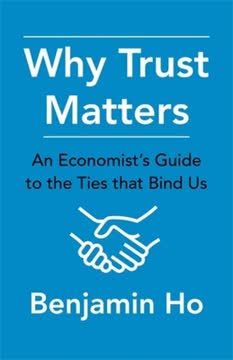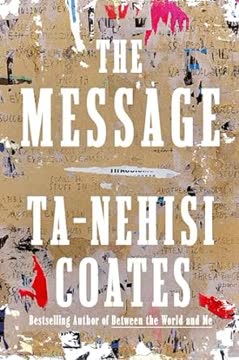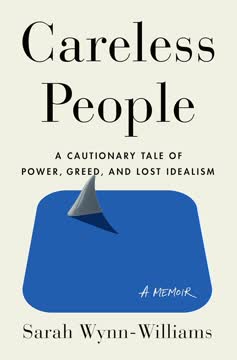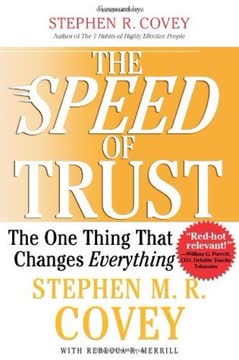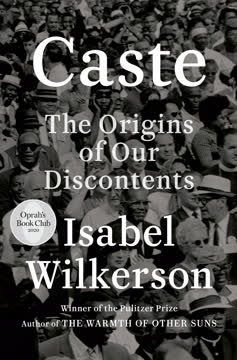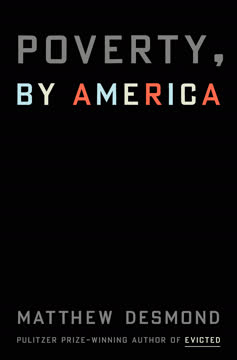Key Takeaways
1. Trust is the Invisible Foundation of Our Complex Society
It is the story (the history) of trust.
Fundamental to society. Every action in our complex, interdependent society, from buying a book to driving to work, relies on the combined efforts of countless people and requires numerous leaps of trust. This "it factor" enables trade, specialization, investment, and innovation, tracing back to the very beginning of human civilization. Without trust, life would revert to a "war of all against all," as philosopher Thomas Hobbes described it.
Beyond transactions. While often associated with money and transactions, trust permeates all interactions under conditions of uncertainty. It structures our religions, workplaces, apologies, and even why we laugh. Brands and politicians actively seek to win our trust, highlighting its pervasive influence on our daily lives and collective actions.
Economists' unique lens. Though other social sciences study trust, economists bring a distinct perspective by framing it as a choice involving trade-offs, costs, and benefits under uncertainty. This approach allows for precise measurement and analysis, much like evaluating the risk of investing in the stock market, to understand why we choose to rely on others despite inherent risks.
2. Economists Model Trust as a Risky Choice with Clear Components
At its heart, trust is about making a choice: Do I rely on this person, or do I not?
The trust game. Economists define trust through the "trust game," where an investor (trustor) risks money with an entrepreneur (trustee) who can either reciprocate by sharing returns or defect by keeping all. This game highlights the core elements of trust in relationships where material gain is possible but risk is present.
Four key variables. The economic model of trust is broken down into four interconnected components:
- Trust (Reputation): The trustor's belief in the trustee's trustworthiness, informed by past actions and prior beliefs.
- Trustworthiness (Values): The trustee's preferences or intentions, which determine if they will act in a beneficial way.
- Act of Trust (Vulnerability): The trustor's risky choice to rely on the trustee, risking loss for potential greater gain.
- Act of Trustworthiness (Sacrifice): The trustee's costly action to reciprocate trust, enhancing their reputation.
Predicting behavior. Traditional economic analysis, assuming pure self-interest, predicts a breakdown in trust in the trust game, as the trustee would always defect. However, real-world and experimental evidence shows trust happens, leading behavioral economists to incorporate moral values like reciprocity, altruism, and guilt into their models to explain this phenomenon.
3. Our Biology Primes Us for Tribal Trust, Limiting Our Social Circles
Evolution selects traits for a purpose, and these behaviors were programmed into our genes tens of thousands of years ago—but why?
Innate social reflexes. Humans are born with biological predispositions for trust, evident in behaviors like babies' smiles and laughter, which serve as signals of trustworthiness and playful intent. These autonomic responses, difficult to fake, help us identify shared norms and values, forming a basis for initial trust.
Altruism and empathy. Evolutionary theory suggests that traits promoting the survival of genes, not just individuals, lead to altruistic behaviors. Experiments like the dictator game show a surprising level of innate altruism, which economists call "social preferences," indicating a preference for the well-being of others. The existence of genes for empathy further supports the biological roots of these social preferences.
Dunbar's number. Our brains are naturally limited in the number of stable social relationships we can maintain, estimated around 150, known as Dunbar's number. This constraint meant early human communities relied on direct, reciprocal relationships. Overcoming this limit required developing institutions that could manage trust at larger scales, often by grouping individuals into collective identities.
4. Institutions Like Religion and Markets Expanded Trust Beyond Tribes
The story of human civilization is the story of how we learned to trust one another.
Beyond personal ties. As human civilization grew beyond small tribes, new social institutions emerged to facilitate trust among larger, more anonymous groups. These institutions provided frameworks for shared beliefs, rules, and enforcement mechanisms that transcended individual relationships.
Religion's role. Religious institutions expanded trust by creating shared group identities, values, and moral codes. High barriers to entry (rituals, specialized knowledge) ensured commitment, and the threat of divine punishment (e.g., belief in hell) incentivized trustworthy behavior even when no one was watching. This fostered cohesion within the in-group but often at the expense of distrusting outsiders.
Markets and law. Medieval markets, like the Champagne Fairs, developed private legal systems and reputation mechanisms (blacklisting) to enforce contracts and facilitate trade across diverse regions, independent of government power. The eventual rise of the rule of law, backed by a government's monopoly on violence, provided a more centralized and abstract system for enforcing agreements, further expanding the scope of trust beyond personal and religious affiliations.
5. The Modern Economy Operates on Abstract Trust in Systems and Brands
Money is a useful yardstick for measuring those things, but just as most physicists don’t spend much time thinking about inches or kilograms, most economists don’t give money much thought most of the time.
Money as trust. Modern money, especially fiat currency, is fundamentally an act of faith. Its value is not backed by physical commodities like gold, but by trust in the issuing government's stability and its central bank's responsible management of the money supply. Historical examples, like Yap's stone money or the Capitol Hill Babysitting Co-op, illustrate money as a collective accounting mechanism for favors and value.
Interest rates quantify trust. In financial markets, interest rates serve as a precise measure of trust. The "spread" added to a base rate reflects the lender's assessment of a borrower's trustworthiness (creditworthiness) and the risk of default. Lower interest rates signify higher trust, enabling greater investment and economic activity.
Brands and reputation. In a mass-production economy, brands replace individual reputations, acting as a mnemonic for collective trustworthiness. They solve the "market for lemons" problem by signaling consistent quality and values, allowing consumers to trust anonymous corporations. Brands also help consumers signal their own identity, fostering trust with like-minded peers.
6. Digital Platforms and Blockchain Are Reshaping How We Trust Anonymously
The fundamental promise of blockchain is to replace trust with an algorithm.
Online reputation systems. The internet has revolutionized trust by enabling robust online reputation systems (e.g., eBay, Uber, Airbnb). These platforms disseminate information about anonymous buyers and sellers, allowing strangers to transact efficiently based on aggregated feedback and ratings, effectively digitizing the medieval "law merchant" system.
Platforms and disaggregation. Many major online companies act as "platforms," connecting numerous buyers and sellers without directly producing goods or services. This disaggregation of traditional firms promotes competition among sellers but often leads to monopoly power for the platform itself. While convenient, it shifts the nature of worker-firm relationships from long-term trust to short-term market interactions.
Blockchain's algorithmic trust. Blockchain technology, exemplified by Bitcoin, aims to replace trust in institutions (like banks or central banks) with trust in a decentralized algorithm. By distributing transaction ledgers across millions of computers, it seeks to ensure security and transparency without relying on human intermediaries. However, this comes with its own challenges, including high energy consumption and the need to trust the algorithm's infallibility.
7. Erosion of Trust in Expertise Poses Significant Challenges to Society
Trust in the media, politicians, doctors, government—in expertise generally—has eroded.
Declining confidence. Recent decades have seen a noticeable decline in public confidence in various institutions and experts, including the media, politicians, and the medical profession. While trust in the military and science has been more stable or even increased, this overall erosion poses a threat to collective problem-solving.
Causes of erosion. Several factors contribute to this decline:
- Increased choice: More information sources and options make it easier to seek out opinions that confirm existing biases, rather than challenging them.
- Fear of the "other": As global interconnectedness grows, the traditional mechanism of fostering in-group trust by defining an out-group becomes more complex and potentially divisive.
- Overconfidence: Greater access to information, especially online, can lead to overconfidence in one's own perceptions, valuing them above expert consensus.
Consequences for policy. This distrust impacts critical areas like public health (vaccine hesitancy, opioid crisis) and environmental policy (climate change denial). It complicates democratic decision-making, as voters may prioritize shared values over expert information, and politicians may pander to biases rather than pursuing optimal policies.
8. Personal Biases and Overconfidence Can Undermine Trust in Ourselves and Others
People trust studies that confirm their prior beliefs.
Confirmation bias. A fundamental psychological bias, confirmation bias, leads individuals to place more trust in information that confirms their existing beliefs and distrust information that contradicts them. This is rational from an individual's perspective, as they assume their own worldview is correct, but it leads to biased consumption of news and information.
Political correctness. The desire to be trusted by one's social group can lead to "political correctness," where individuals suppress dissenting truths to maintain their reputation as a "good person." This dynamic, exacerbated by social media, can stifle the spread of diverse ideas and hinder the collective search for truth.
Procrastination and future self. Behavioral economics reveals that we often distrust our future selves, valuing immediate gratification over long-term well-being. This "procrastination problem" stems from perceiving our future self as a distinct entity, leading to under-saving for retirement or unhealthy habits. Languages without future tense verb conjugation, surprisingly, correlate with greater patience and better future-oriented decisions.
9. Apologies are Costly Signals Essential for Restoring Broken Trust
The reason to care about these questions is that apologies restore broken trust, and as we have seen throughout this book, trust is the cornerstone of the economy.
Restoring trust. Apologies are a crucial human institution designed to repair relationships and restore broken trust. Research shows that apologies work by signaling trustworthiness, particularly when they involve a costly sacrifice from the apologizer.
Types and effectiveness. Apologies vary in their effectiveness based on the cost incurred:
- Partial apologies ("I'm sorry if you were offended") are often ineffective.
- Tangible apologies (e.g., offering compensation) are more effective.
- Promise-based apologies (committing to future change) can be effective but carry the risk of backfiring if the promise is broken.
- Abasement-based apologies (admitting fault) can restore trust but may reduce perceived competence.
The paradox of apology. Apologies are difficult because they often entail admitting fault, which can expose one to punishment or legal repercussions. Laws encouraging apologies (e.g., in medical malpractice) reduce this cost, making apologies more common and effective in speeding up settlements and reducing lawsuit values, especially for minor injuries or in specialties with high patient vulnerability.
10. Dignity and Privacy Create Necessary Limits on How We Assess Trust
Kant believed that all humans have a right to be treated in a way that does not depend at all on who they are, or what they did, even if what they did was criminal or immoral.
Beyond efficiency. While economists often prioritize efficiency and information, the concepts of human dignity and privacy introduce crucial constraints on how trust is assessed. Dignity implies that individuals should not be treated differently based on immutable characteristics (race, gender, age) or irrelevant past behaviors.
Social credit vs. privacy. Systems like China's social credit score, which uses extensive personal data (jaywalking, online activity) to determine access to services, highlight the tension between maximizing information for trust assessment and protecting individual privacy and dignity. Western democracies, while valuing information, have laws (e.g., Equal Opportunity Credit Act) limiting what data can be used for credit decisions to prevent discrimination.
Privacy as autonomy. Privacy is not merely about secrecy; it's about controlling how personal information is used and by whom. The "right to be forgotten" in GDPR, for instance, allows individuals to remove past information from public search, reflecting a societal desire to limit the long-term consequences of past actions and preserve personal autonomy from social control.
11. The Historical Arc of Trust Points Towards an Optimistic Future
Great challenges lay ahead, but our social evolutionary roots have given us the tools we need to succeed.
Enduring human progress. Despite contemporary pessimism about global challenges like climate change and political polarization, a broad historical perspective reveals a consistent upward trend in human well-being. Mortality rates have declined, happiness has increased, and disparities have narrowed across centuries.
Adaptability of trust. The evolution of trust, from small tribal groups to global institutions, demonstrates humanity's remarkable capacity to adapt and expand its circles of cooperation. Each era has developed new mechanisms—from religious strictures to market regulations and digital platforms—to manage trust at increasingly complex scales.
Tools for the future. While new technologies and interconnectedness present unprecedented challenges, they also offer new tools for fostering trust. By understanding our biological predispositions, the historical development of trust-enabling institutions, and the trade-offs between efficiency, dignity, and privacy, we can continue to refine our social structures to address global problems and build a more cooperative future.
Last updated:
Review Summary
Readers generally found Why Trust Matters to be an accessible and interesting exploration of trust in society and economics. Many appreciated the book's wide-ranging examples and research, though some felt it lacked focus or depth. Reviewers praised the author's insights on trust's role in cooperation, social structures, and economic value. Some found the writing style easy to follow, while others noted occasional disorganization. Overall, the book was seen as a thought-provoking introduction to trust's importance, despite some criticisms of its structure and depth of analysis.
Similar Books
Download PDF
Download EPUB
.epub digital book format is ideal for reading ebooks on phones, tablets, and e-readers.
